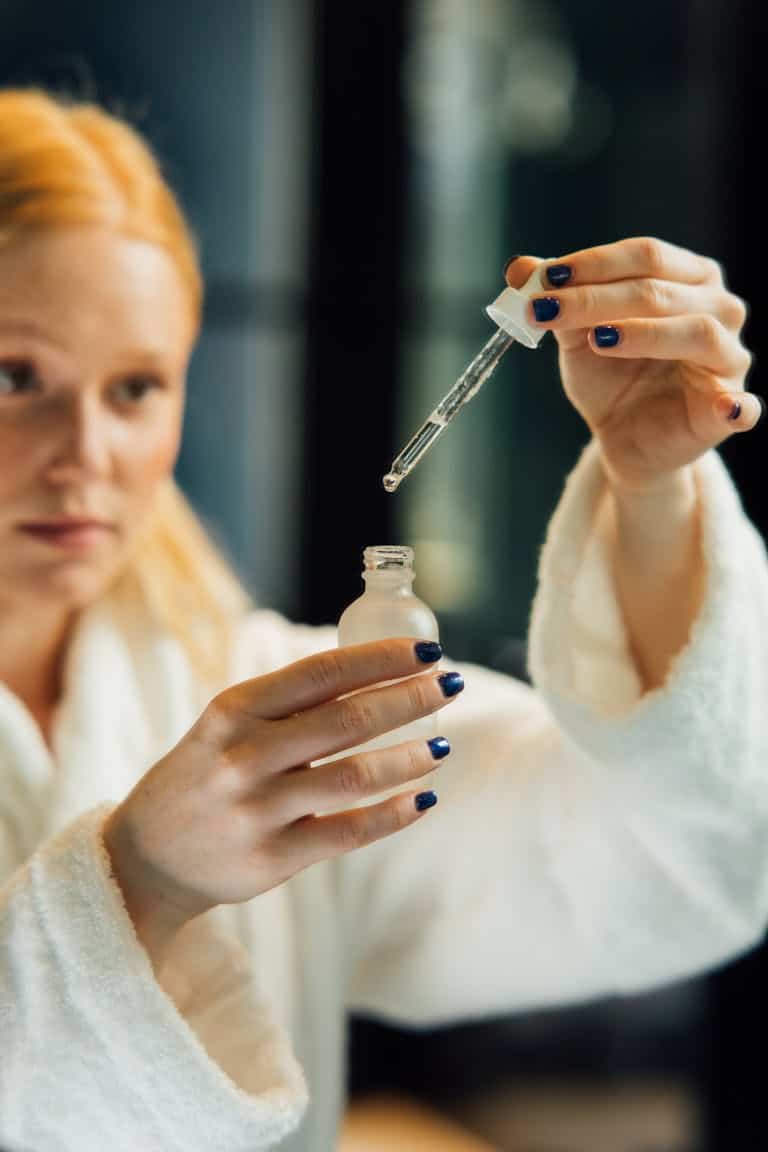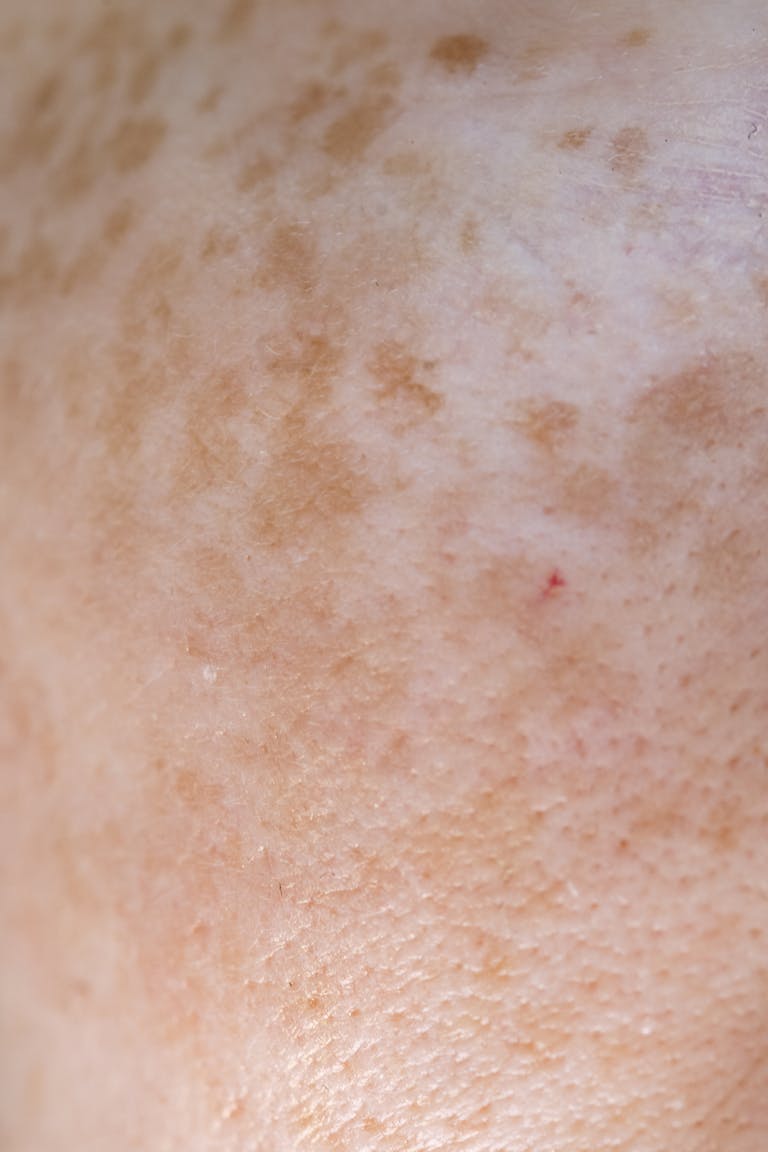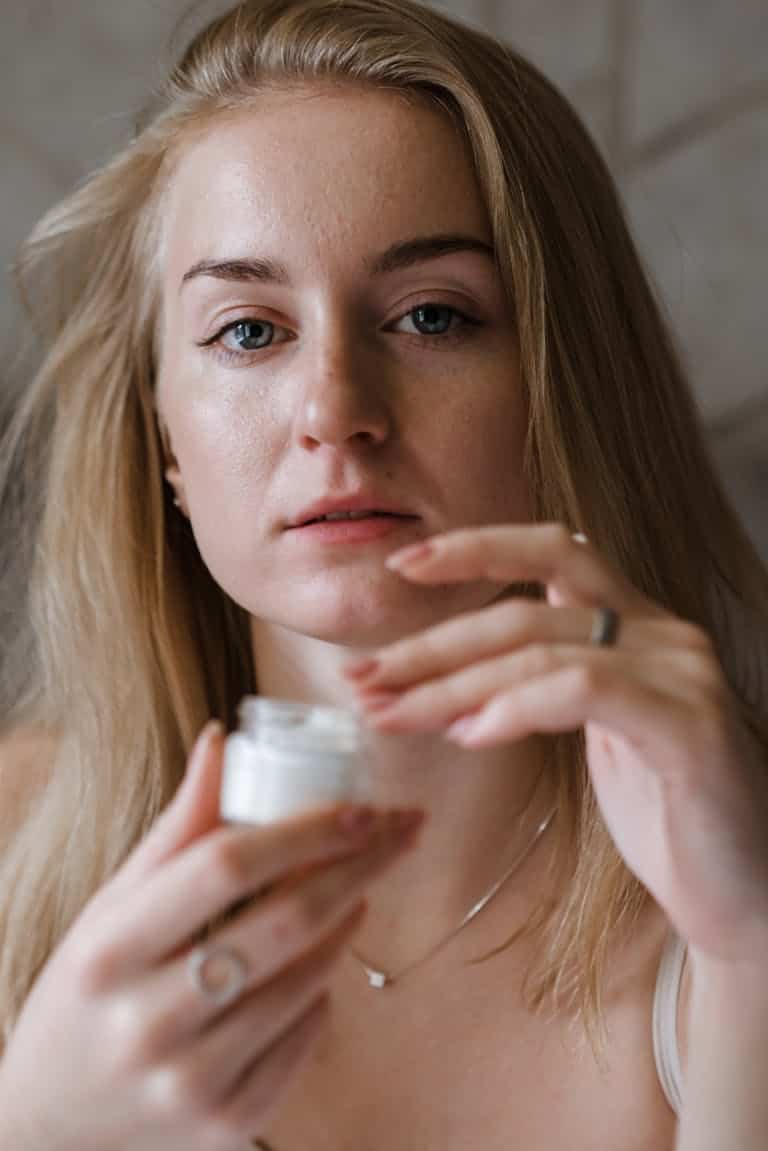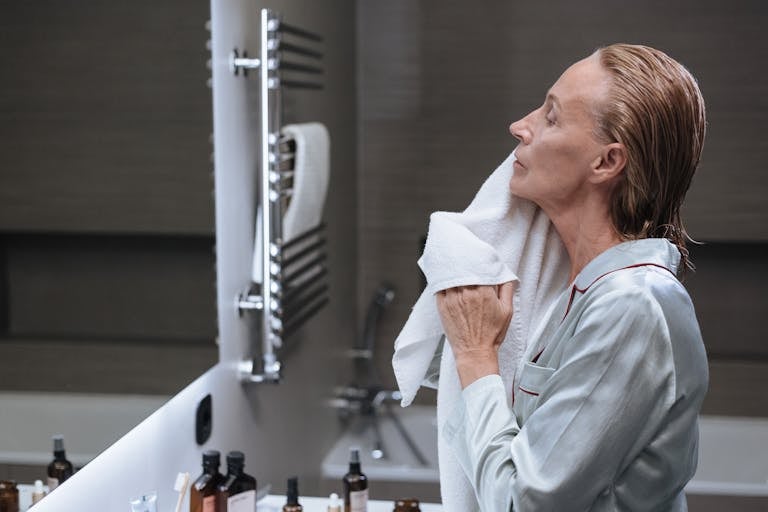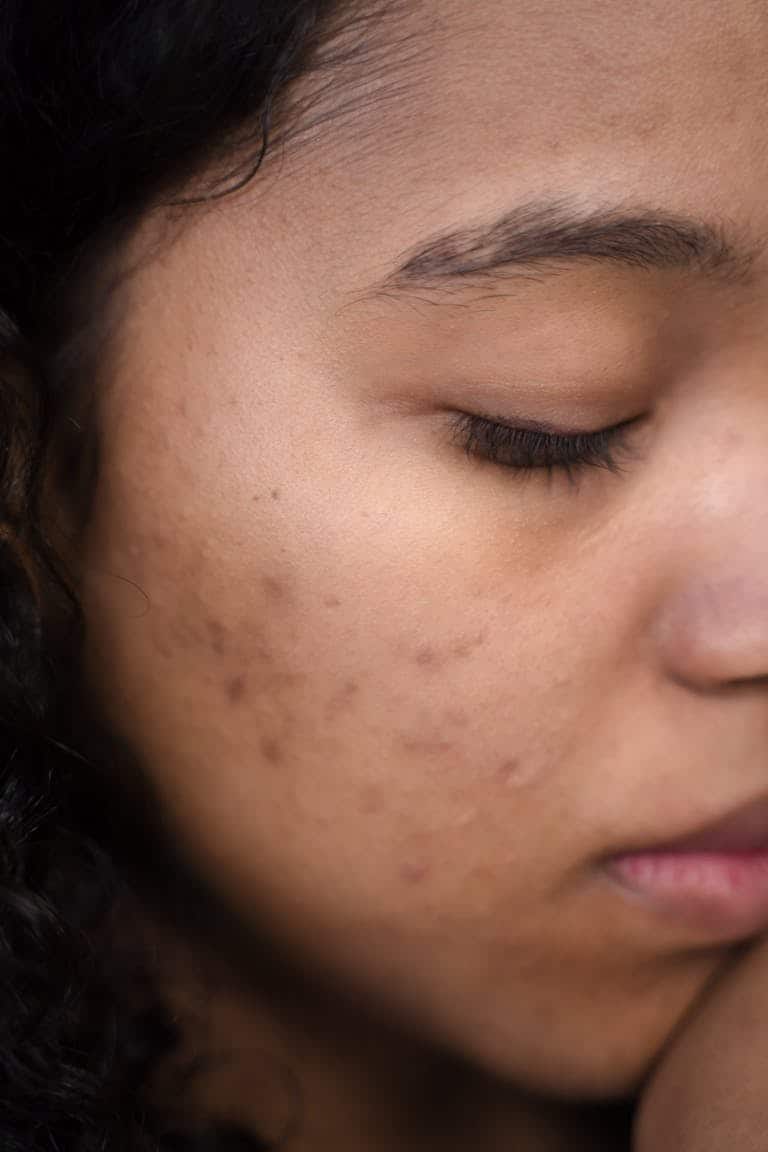Bakuchiol vs. Retinol: Which Is Best for Perimenopausal Skin?
Introduction
If you’re navigating the world of skincare during perimenopause, you’ve likely come across the debate of bakuchiol vs retinol. Many women notice their skin becomes drier, thinner, or more sensitive during this time and wonder which ingredient is the better choice. While retinol has long been celebrated for its anti-aging benefits, bakuchiol is gaining popularity as a gentler, plant-based alternative. In this guide, we’ll explore the differences between bakuchiol and retinol, their benefits and drawbacks for perimenopausal skin, and how to decide which is right for you. Plus, I’ll share my favorite products tailored to your changing skin needs.
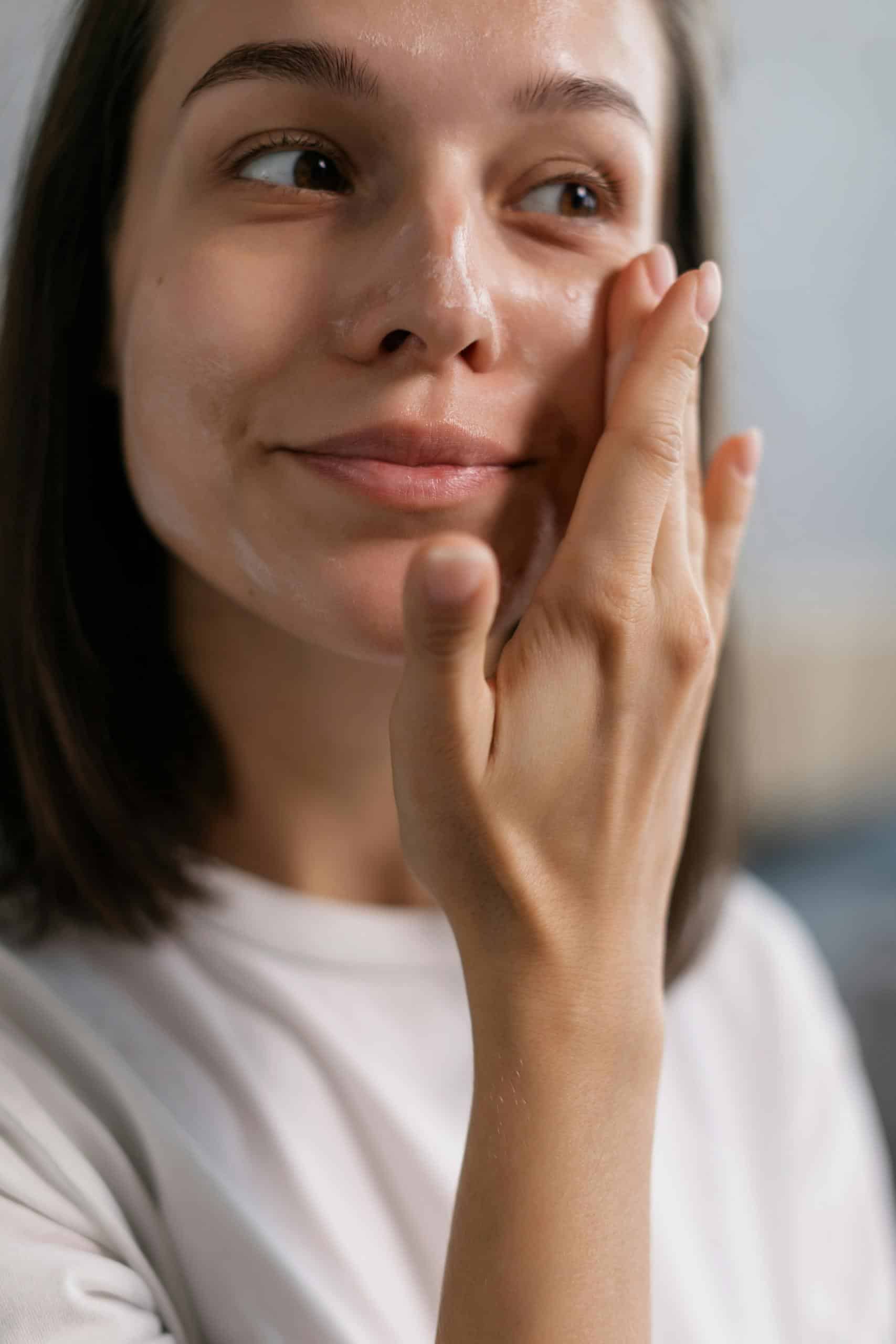
Why Perimenopausal Skin Reacts Differently
During perimenopause, estrogen levels decline, which slows collagen production and leads to fine lines and loss of firmness. The skin barrier becomes weaker, increasing dryness, and the skin itself becomes more reactive to potent active ingredients. Because of these changes, even long-time retinol users may experience irritation, which is why gentler options like bakuchiol are worth considering.
What Is Retinol?
Retinol is a vitamin A derivative and one of the most studied anti-aging skincare ingredients. It works by increasing cell turnover, boosting collagen and elastin production, and fading dark spots for a more even skin tone. For mature skin, retinol smooths fine lines and wrinkles, improves texture, and brightens dullness.
However, it is not without drawbacks. Retinol can cause redness, peeling, and dryness, especially in sensitive or thinning skin. It also increases sun sensitivity, so daily SPF is essential. Results can take eight to twelve weeks to become noticeable.
What Is Bakuchiol?
Bakuchiol is a natural compound extracted from the seeds and leaves of the Psoralea corylifolia plant. It is rich in antioxidants and has been shown in studies to improve skin elasticity, reduce fine lines, and even out skin tone.
It is especially popular for sensitive skin because it mimics many of retinol’s benefits without the same level of irritation. Bakuchiol is safe for day or night use and does not increase sun sensitivity. The main drawback is that there are fewer long-term studies compared to retinol, and results may appear more gradually.
Bakuchiol vs. Retinol: Key Differences
Retinol is typically synthetic or animal-derived vitamin A, while bakuchiol is plant-based. Retinol has decades of research proving its effectiveness and often works more quickly, but it carries a higher risk of irritation and requires strict sun protection. Bakuchiol, by contrast, is gentler, well tolerated by sensitive or dry skin, and can be used in the morning without added sun sensitivity. Retinol is best for those with resilient skin who want faster results, whereas bakuchiol is ideal for anyone retinol-intolerant or looking for a natural option.
How to Use Each Safely in Perimenopause
For retinol, start slowly by applying it one or two nights per week, then gradually increase frequency as your skin builds tolerance. Apply it after cleansing and before moisturizing, and always wear SPF 30 or higher during the day.
For bakuchiol, you can use it morning, evening, or both. It pairs well with other antioxidants and hydrating ingredients. While bakuchiol itself doesn’t increase sun sensitivity, daily sunscreen remains important for overall skin health. If you enjoy retinol but find it too strong, alternating retinol one night and bakuchiol the next can give you the benefits of both without overwhelming your skin.
Top Product Recommendations
For bakuchiol, I recommend the Herbivore Botanicals Bakuchiol Retinol Alternative Serum. This serum is gentle and plant-based, making it an excellent option for perimenopausal skin. It combines bakuchiol with hydrating tremella mushroom, which acts similarly to hyaluronic acid to support moisture and plumpness. The formula helps boost collagen production without irritating sensitive skin, making it ideal if you’re looking for effective anti-aging benefits without the typical retinol side effects.
Another great choice is the Cetaphil Gentle Clear Repairing Post-Acne Serum. This lightweight serum includes 0.5% bakuchiol alongside niacinamide, which works to brighten the skin and repair the skin barrier. Its antioxidants target discoloration and uneven tone, common concerns during perimenopause. The gentle texture makes it suitable for sensitive skin while addressing fine lines, dullness, and pigmentation changes.
Both of these products provide the nourishing, gentle care that perimenopausal skin needs, combining effective ingredients that support skin health without causing irritation or dryness. Incorporating either into your routine can help maintain a radiant, youthful complexion during this transitional phase.
If you prefer retinol, La Roche-Posay Retinol B3 Serum is gentle and stabilized, with niacinamide to help calm the skin. Neal’s Yard Remedies Frankincense Intense Lift Serum blends botanicals with retinol esters for a softer approach. Avène RetrinAL 0.1 Intensive Cream uses retinaldehyde, a gentler form of retinol, making it a great choice for sensitive skin.
Bottom Line
Choose retinol if your skin is still resilient and you want faster anti-aging results. Choose bakuchiol if your skin is sensitive, easily irritated, or you want a plant-based option. You can also use them together in a balanced routine, just avoid applying them at the same time.
Perimenopause is a time to listen to your skin’s changing needs. With the right choice, you can maintain radiance, smoothness, and confidence — naturally
